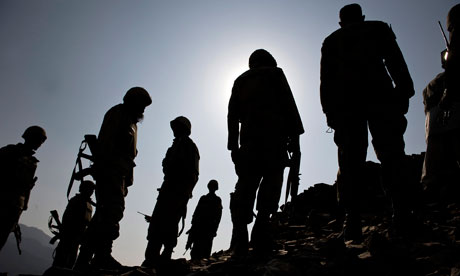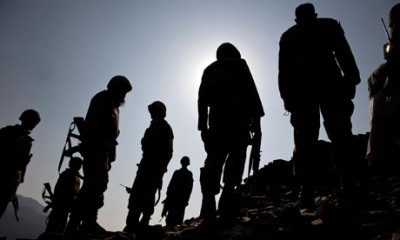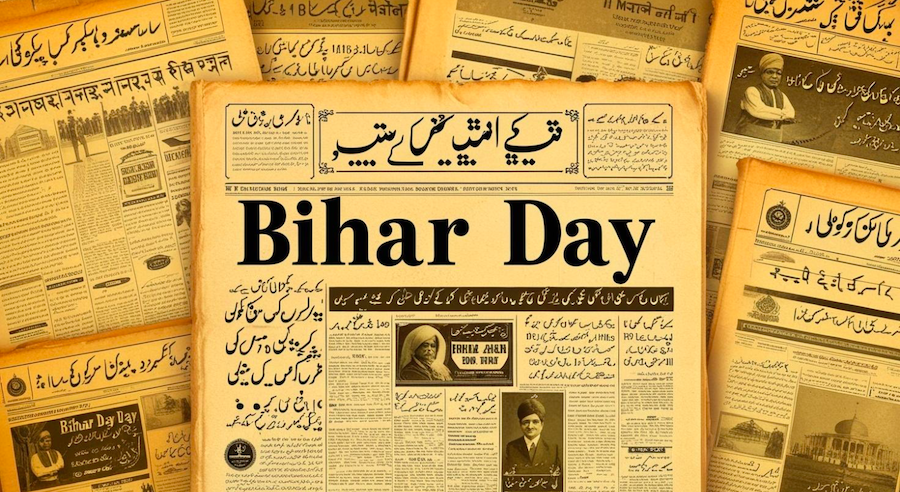Ashish Shukla for BeyondHeadlines
Pakistan Army is the most organised, powerful and influential institution which has appointed itself the guardian of the state and in that capacity proclaims to protect not only the territorial frontiers of the state, like other armies of the world, but the ideological one also. Almost half of the time, since the inception of Pakistan, it has directly ruled the state and, not to mention, taken all the decisions by its own. During the periods of civilian regimes, by using powerful intelligence agencies like the Inter-Services Intelligence (ISI) and the Military intelligence (MI), it not only influenced, better to say guided, major policy decisions effectively but also exercised veto on specific occasions. There are various theories, from identity crisis to failure of political leadership and constant weakening of the democratic institutions in the country, that claim to explain the phenomenon of army’s intervention in the political domain and undoubtedly have some merit. However, a close analysis of all the four military dictatorships makes it ample clear that Pakistan Army assumes direct control of the state, by overthrowing civilian regimes, only when it realises that its institutional and corporate interests, which it cautiously guards, are being threatened either directly by the actions of the civilian government or by the emergence of a complex situation. The autonomy of the military institutions, non-intervention of civilian leadership in its internal organisational matters, including service affairs, and any cut on defence spending are considered crucial in this regard.
Being a paramount institution, army sometimes independently interacts with other domestic and foreign institutions. These interactions, especially with the foreign institutions, provide army a kind of leverage over other domestic institutions of the state which consequently strengthens it and helps protect its institutional and corporate interests. During Afghan “Holy Jihad”, when General Zia-ul-Haq agreed to make Pakistan a frontline state and conduit for lethal arms and finance to Afghan Mujahedeen, Pakistan Army and ISI frequently interacted with US’ Central Intelligence Agency (CIA), and Saudi Arabia’s General Intelligence Directorate (GID) and in the end gained a lot by siphoning off a large amount of money and arms. It is said that due to these interactions, ISI gained enormous strength and emerged as a significant player in Pakistan. Soon after the accomplishment of the “Holy War Project”, Americans left Pakistan to bear the brunt and with this the interactions came to a halt only to be resumed in the wake of September 11 attack on the United States.
The terrorist attacks of 9/11 prompted a structural change in the very international system which forced a number of states to make fundamental changes in their policies regarding terrorism including Pakistan. It was the time when General Pervez Musharraf was struggling hard to cope with the reality of the Pakistani state. On the one hand, he was trying to overcome the humiliation caused by Kargil mini-war and on the other he was attempting to improve already collapsing economy of Pakistan. It is often underlined that under extreme pressure from US, Musharraf was forced to make a fundamental shift in Pakistan’s Afghanistan policy and cooperate on US led “War on Terrorism”. That was only one side of the coin. The other side is equally important. Indeed, Musharraf sensed a great opportunity in “War on Terrorism” which he grabbed instantly. Under the garb of “War on Terrorism”, he started consolidating his own and army’s position in the political sphere. It is no secret that Pakistani military received over $10 billion as direct aid and an undeclared amount of secret aid which Musharraf himself has conceded in his memoire.
Musharraf was such a strategist that, having US by his side, he not only consolidated army’s position in society but institutionalised its firm control over the state by passing the National Security Act in 2004. This very Act paved the way for the establishment of a National Security Council (NSC) as a consultative body with an explicit agenda of deliberating on national security issues. These issues generally include matters related to sovereignty, integrity, defence, security of the state and crisis management. The council is composed of 13 members which includes President of Pakistan, as the head, Prime Minister, Chairman of the Senate, Speaker of National Assembly, leader of opposition of National Assembly, Chief Ministers of the four provinces, Chairman of the Joint Chiefs of Staff Committee (CJCSC) and the chiefs of the Pakistan Army, Navy and Air-Force. Thus, NSC greatly assisted army to emerge as the most powerful player in national decision-making.
Indeed, there is no need for army to organise a coup. Given the history of Pakistan and the presence of the top brass of the military in NSC, it’s apparent that army’s interests would be taken care of, even when it is not ruling the country directly. Now one can have a fair idea why army did not go to the extent of overthrowing the government when issues like Abbottabad Operation and Memo-gate scandal surfaced. Primary reason of not doing this was the fact that Pakistan Army was very much sure of fulfilling its institutional and corporate interests. Until and unless these interests are threatened army will prefer to work behind the scene.
The present civilian regime is going to make history by completing its full five year term. The credit goes to Zardari and his associates including Yousuf Raza Gilani, former Prime Minister, who did not challenge army the way Zulfiaqr Ali Bhutto, Benazir Bhutto and Nawaz Sharif had done. It is necessary to mention some other important factors which contributed positively in the process. Opposition leaders, especially Nawaz Sharif has shown great maturity by not derailing the democratic process. Initially, he not only formed coalition government with the Pakistan Peoples Party (PPP) and worked hard for the restoration of the deposed Chief Justice of Pakistan but later, while being in opposition, agreed to some basic rules of the game and did not approach army to sort out any issue between opposition and ruling dispensation.
There have been very few moments in history Pakistan receiving such media coverage for good reasons. We can find newspaper stories about terrorist and violent sectarian attacks in Pakistan almost on a daily basis which is undoubtedly the result of Pakistan’s own policies. But amid these violent attacks, there is hope of a new dawn. In upcoming months, Pakistan will have general elections which will determine the future of Pakistan. There are ample evidences to suggest that, after the elections, there will be a peaceful transfer of power which will strengthen the prospects of peace and stability not only in Pakistan but in the region as well.
(Author is Ph.D. Candidate, South Asian Studies, School of International Studies in JNU, New Delhi.)










